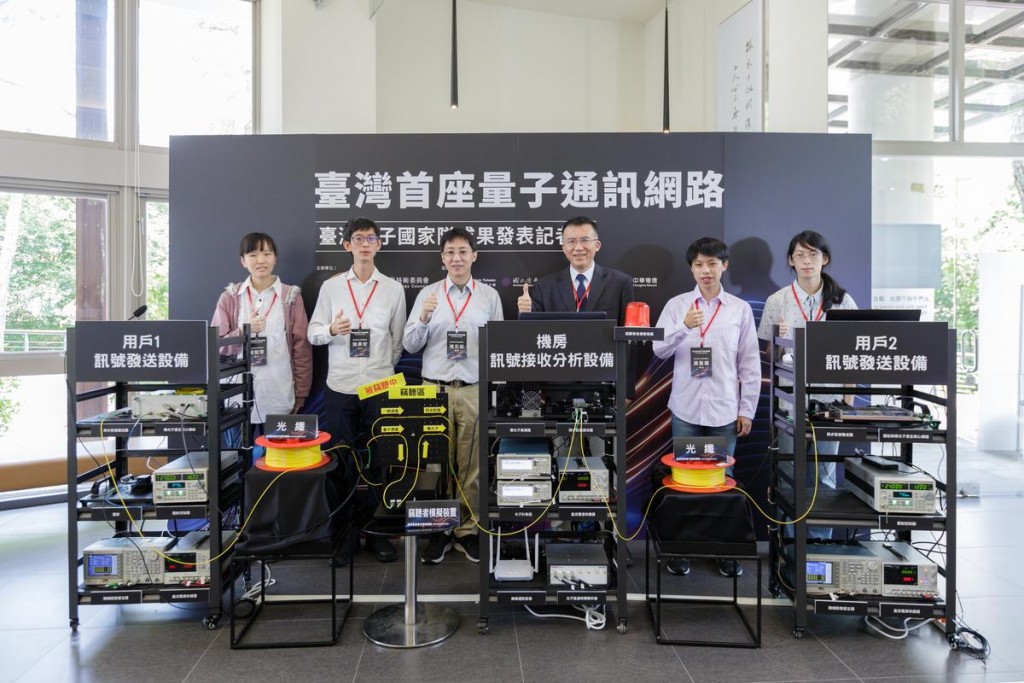Taiwan team debuts tech capable of 'permanent encryption'
Quantum cryptography model cannot be compromised covertly

As the threat of quantum computing power to information security grows, a team of Taiwanese scientists and researchers have created the country’s first communication network using quantum cryptography, which researchers say may allow for “permanent encryption.”
National Science and Technology Council Chairman Wu Tsung-tsong (吳政忠) said on Wednesday (May 3) that the effort has been achieved by cross-ministerial cooperation, combining talents from different fields. “This model will comprehensively improve the security of network communication,” he said.
The team provided a live demonstration to show that communications using the technology cannot be compromised without also alerting the person sending or receiving the information. National Tsinghua University associate professor Chuu Chih-Sung (褚志崧) was responsible for developing the model and said the encryption method relies on the uncertainty principle, a core concept of quantum mechanics.
The uncertainty principle gives rise to certain highly predictable behaviors when using a specific type of light. In addition to being suitable for transmitting data along a fiber optic cable, the predictability of the light’s behavior means that it is immediately apparent when the communications are being intercepted by a third party.
The National Science Council said that the research team will cooperate with Chunghwa Telecom to roll out the technology across Taiwan and facilitate the integration of quantum encryption into everyday applications.
Quantum computing technologies are receiving massive investment from states and companies around the world. In June 2022, Canadian researchers made a quantum computer available to the public for the first time, which can solve a task in 0.36 seconds that the next best supercomputer would take 9000 years to complete.
Date: 2023-05-03
Source: Taiwan News